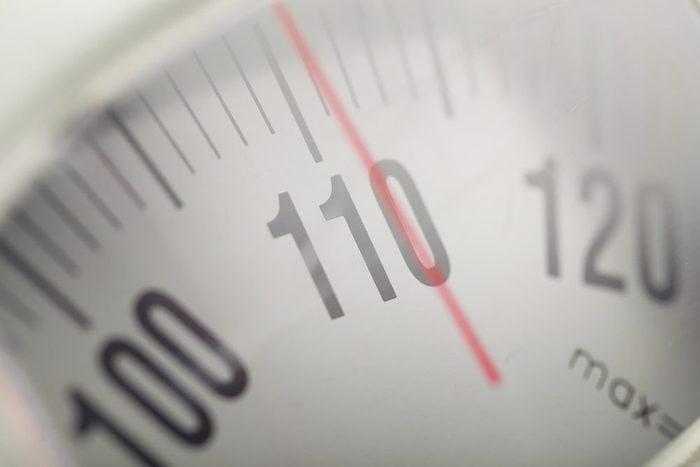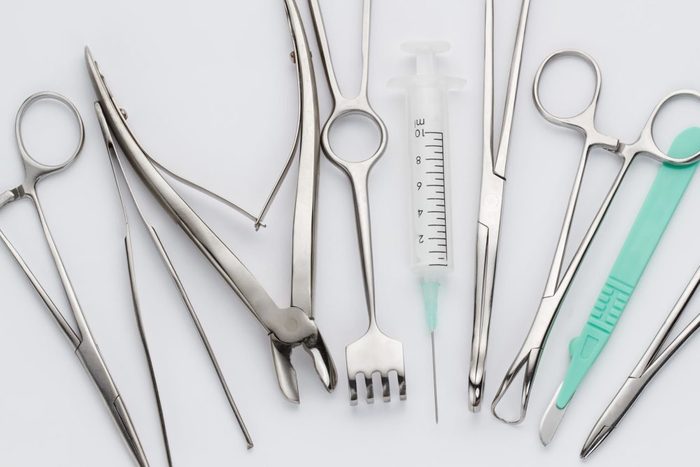Understanding vitamin D deficiency and risk factors
It can be difficult to gauge whether you are vitamin D deficient. The telltale signs of a vitamin D deficiency range from fatigue to being prone to stress fractures. But, what about the causes? You probably know that not enough sunlight or not consuming vitamin D-rich foods, like salmon, can contribute to this vitamin deficiency, but there are unexpected causes that could put you at further risk.
Now, it’s important to note that a blood test can help determine whether you’re low in vitamin D: Normal levels of vitamin D are approximately 30 ng/mL. Between 20 and 30 ng/mL is considered insufficient, and a level below 20 ng/mL is considered deficient. If you are low, Niket Sonpal, MD, assistant professor of medicine at Touro College of Osteopathic Medicine in New York City, recommends taking a daily supplement of 1,000 international units (IU). Keep in mind that too much D can be toxic, and could lead to bone pain, gut pain, constipation, nausea, and vomiting. Don’t try to diagnose yourself, he says. “See a doctor who can tell you how much to take for how long.”
Here are some of the causes of vitamin D deficiency that could affect your health.

Not enough sun
When your skin is exposed to sunlight, vitamin D synthesis occurs. But some people don’t get the sunlight they need in order for this to happen. This includes people who live in northern climates, office workers who spend hours a day behind a desk, and even children who play indoors rather than outside. “Not getting enough vitamin D affects bone health as well as many other metabolic processes in the body,” says Dr. Sonpal.

Getting older
“Everyone is at increased risk of developing low vitamin D levels as they age because the skin cannot synthesize the vitamin as efficiently,” says Ginger Hultin, a Seattle-based registered dietitian and spokesperson for the Academy of Nutrition and Dietetics. Older adults may also spend more time indoors.

Dark skin
Having a darker skin pigment can be one of the causes of vitamin D deficiency. “Higher amounts of the pigment melanin in the epidermal layer of the skin causes both a darker skin color and a reduced ability of the skin to produce vitamin D from sunlight,” says Hultin. “This can mean lower blood levels of vitamin D.” (These are the best sunscreens for dark skin tones.)

Kidney disease
People who have kidney disease are at higher risk of a vitamin D deficiency. Why? A family of proteins known as fibroblast growth factors increase as the disease worsens, and they interfere with the body’s metabolism of vitamin D, explains Dr. Sonpal. One major problem: Only 10 percent of people with kidney disease know they have it.

Celiac disease
While sunlight is a key to getting vitamin D, other important sources include fortified foods like milk and breakfast cereals. People with digestive issues like celiac disease, an autoimmune condition that causes damage to the small intestine if gluten is consumed, may not absorb enough vitamin D from their food, which could explain why many children with the condition are deficient in vitamin D, according to Beyond Celiac, a patient advocacy and research-driven celiac disease organization. “Some patients end up developing long-term consequences of vitamin deficiency before we even know they have celiac,” says Dr. Sonpal.

Cystic fibrosis
Cystic fibrosis, a genetic disease that causes the body to produce thick mucus and can damage the lungs and gut, can affect the absorption of fat molecules. Because vitamin D is a fat-soluble vitamin, people with cystic fibrosis won’t get much vitamin D from food. “If you can’t absorb fat, you can’t absorb fat-soluble vitamins like D,” says Dr. Sonpal. The damage to lungs also means cystic fibrosis patients are less likely to spend time outdoors in the sun, he points out.

Crohn’s disease
Another example of a digestive condition interfering with vitamin D absorption: Crohn’s disease. This is an inflammatory bowel disease that causes intestinal inflammation, which can mean people with this condition get very little vitamin D from their diet. (Check out this nutritionist-approved Crohn’s disease diet.)

Obesity
“Obesity does not affect the body’s ability to make vitamin D,” Hultin says. “Rather, a greater amount of subcutaneous fat in the body sequesters more vitamin D and lowers the amount that is able to circulate in the body.” (These are the vitamin D benefits that could be lifesavers.)

Gastric-bypass surgery
Unfortunately, one of the solutions for obesity—gastric bypass—can also cause a D deficiency. That’s because the surgery removes part of the intestine, which reduces the amount of the vitamin that the body can absorb from food. Here are the pros and cons of the top weight-loss procedures.

An intestinal infection
Whipple’s disease is a rare bacterial infection caused by Tropheryma whipplei. It interferes with normal digestion by hindering the breakdown of foods, such as fats and carbohydrates. It also affects the body’s ability to absorb nutrients. “Bugs block the intestinal pores in which we absorb nutrients, so vitamin D can’t be absorbed,” says Dr. Sonpal.

Where you live
Living in a cold, dark climate can increase the risk of vitamin D deficiency. So can living in a place where the fortification of bread and cereal isn’t common. “India is one such place,” says Dr. Sonpal. “Most Western nations typically have fortification.”

